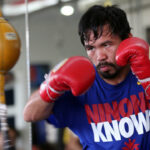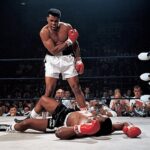In the heart of Belgium, football clubs have long been a dominating force, captivating fans and shaping the country’s sporting landscape. With an illustrious history dating back to the late 19th century, these clubs have become institutions, embodying the nation’s passion for the beautiful game.
From the prestigious Standard Liège, known for its fierce rivalries and rich heritage, to the perennially successful Anderlecht, whose trophy cabinet overflows with domestic honours, these teams have left an indelible mark on the Belgian football scene.
But what exactly is it that sets these clubs apart? Is it their unwavering support from loyal fans, their expertly trained players, or their visionary tactics? Perhaps it’s a combination of all these elements, creating a winning formula that leaves competitors in the dust.
As the Belgian Pro League continues to gain international recognition, these clubs show no signs of relinquishing their dominance. With each passing season, the battles on the pitch become more heated, the stakes rise, and the thrill for supporters is unparalleled.
In this article, we delve into the stories behind Belgium’s most dominant football clubs, exploring their rise to prominence, the key figures that have shaped their success, and the enduring legacy they leave on the nation’s sporting culture.
Football in Belgium
When British expatriates brought the sport to Belgium in the late 19th century, the country fell in love with it. The first recorded match took place in 1863 between the Brussels Cricket Club and an international team representing the British. This marked the beginning of a new era for Belgian sports, with football quickly gaining popularity among the local population.
Over the years, Belgian football clubs emerged and flourished, with the national league system taking shape in the early 20th century. The Belgian Pro League, formerly known as the Jupiler Pro League, was officially established in 1895 and has since grown to become one of the most competitive domestic leagues in Europe. The league’s rich history is a testament to the passion and dedication of the Belgian people towards the sport.
The dominance of football clubs in Belgium
What sets Belgian football clubs apart from their counterparts in other countries is their consistent dominance over the years. While Belgium may not be a football powerhouse on the international stage, its clubs have managed to establish themselves as formidable forces within their own league.
The dominance of these clubs can be attributed to several factors. First and foremost, Belgian clubs benefit from a strong youth development system that focuses on nurturing young talent and providing them with the necessary skills and opportunities to succeed. This emphasis on youth development has resulted in a steady supply of talented players who have gone on to make a significant impact both domestically and internationally.
Additionally, Belgian clubs have a strong financial backing, allowing them to attract top-tier players and invest in state-of-the-art training facilities. This financial stability has enabled clubs to build competitive squads and maintain a high level of performance over the years.
The top football clubs in Belgium
When it comes to dominant football clubs in Belgium, a few names immediately come to mind. Anderlecht, based in Brussels, is undoubtedly one of the most successful clubs in the country’s history. With 34 league titles and numerous domestic cup victories, Anderlecht has established itself as the benchmark for success in Belgian football.
Standard Liège, another powerhouse in Belgian football, boasts an impressive record with 10 league titles. Known for its passionate fan base and intense rivalries, the club has consistently challenged Anderlecht’s dominance, creating a fierce competition that adds to the excitement of the Belgian Pro League.
Other notable clubs include Club Brugge, Genk, and Gent, all of which have had their fair share of success both domestically and in European competitions. These clubs have consistently performed well in the league and have made their mark on the international stage, further solidifying Belgium’s reputation as a footballing nation.
Successful seasons and achievements of Belgian football clubs
Belgian football clubs have had their fair share of successful seasons and remarkable achievements throughout their history. Anderlecht’s dominance in the 1960s and 1980s is particularly noteworthy, with the club winning multiple league titles and reaching the finals of the UEFA Cup Winners’ Cup.
Standard Liège also enjoyed a golden era in the late 1960s and early 1980s, clinching league titles and competing in the UEFA Champions League. Club Brugge’s triumph in the UEFA Cup in 1978 was a watershed moment for Belgian football, showcasing the country’s ability to compete with some of Europe’s top clubs.
In recent years, Genk has emerged as a force to be reckoned with, winning multiple league titles and reaching the knockout stages of the UEFA Champions League. These successes highlight the depth and competitiveness of Belgian football, with clubs continually striving for excellence.
The impact of football clubs on Belgian society
Football clubs in Belgium have a profound impact on society, transcending the boundaries of the sport itself. They serve as rallying points for communities, bringing people from different backgrounds together to support a common cause. The passion and loyalty of fans are evident in the electric atmosphere of matchdays, where stadiums come alive with chants, flags, and unwavering support.
Moreover, football clubs play a crucial role in fostering a sense of identity and belonging among fans. They are symbols of pride and represent the local culture and values. The success of a club can uplift an entire region, instilling a sense of pride and unity among its residents.
The economic impact of football clubs should not be overlooked either. Matchdays generate significant revenue for local businesses, from restaurants and bars to merchandise stores. Additionally, clubs contribute to the development of infrastructure, creating job opportunities and boosting tourism in the surrounding areas.
The rivalry between football clubs in Belgium
Rivalries between football clubs in Belgium are intense and deeply rooted in history. The matches between Anderlecht and Standard Liège, known as the “Clasico,” are among the most highly anticipated fixtures in Belgian football. The rivalry between these two clubs dates back decades and is fueled by a fierce competition for supremacy in the league.
The Bruges derby between Club Brugge and Cercle Brugge is another heated rivalry that captures the attention of fans across the country. The matches between these two clubs are characterised by intense emotions, passionate support, and high-stakes competition.
These rivalries not only add excitement to the game but also contribute to the overall growth and popularity of Belgian football. They create a sense of drama and spectacle that keeps fans engaged and invested in the sport.
The fan culture surrounding Belgian football clubs
Belgian football clubs boast a vibrant and passionate fan culture that adds to the allure of the game. Supporters gather in stadiums, waving flags, singing chants, and creating an atmosphere that is unmatched in its intensity. The dedication of fans is evident in their unwavering support throughout the highs and lows of a club’s season.
Fan clubs, known as “supporters’ clubs,” play a significant role in fostering a sense of community and camaraderie among fans. These clubs organise events, trips, and social gatherings, providing a platform for fans to connect and share their love for the club.
In recent years, fan culture has also extended to social media platforms, with fans actively engaging in discussions, sharing updates, and expressing their opinions online. This digital revolution has further amplified the fan experience, allowing supporters to connect with fellow fans from around the world and stay connected with their favourite clubs.
The future of football clubs in Belgium
As Belgian football continues to evolve, the future of football clubs in the country remains bright. The Belgian Pro League’s growing international recognition, coupled with the success of Belgian players abroad, has raised the profile of Belgian football on the global stage. This increased visibility has attracted investment from both domestic and foreign sources, providing clubs with the resources needed for sustained success.
Furthermore, the emphasis on youth development and the continuous improvement of training facilities bode well for the future of Belgian football. With a steady supply of talented young players, clubs can build strong squads capable of competing at both domestic and international levels.
While challenges and uncertainties will undoubtedly arise, the passion and dedication of Belgian football clubs and their fans will continue to drive the sport forward. As long as the love for the game remains strong, Belgian football clubs will maintain their dominance and captivate fans for generations to come.
Conclusion
The dominance of football clubs in Belgium is a testament to the country’s love for the sport. From the rich history of Belgian football to the success of clubs such as Anderlecht, Standard Liège, and Club Brugge, these institutions have become an integral part of Belgian society.
The impact they have on communities, the rivalries they fuel, and the passionate fan culture they inspire all contribute to the enduring legacy of Belgian football clubs. As the future unfolds, one thing is certain: the dominance of these clubs in Belgium will continue to captivate and inspire football fans around the world.
Bolton wanderers football club
Estimating The Football Score predictions
English Football Clubs Match Predictions
Guide to Choosing the Perfect Football Academy in Europe
How San Marino Football Defies the Odds












